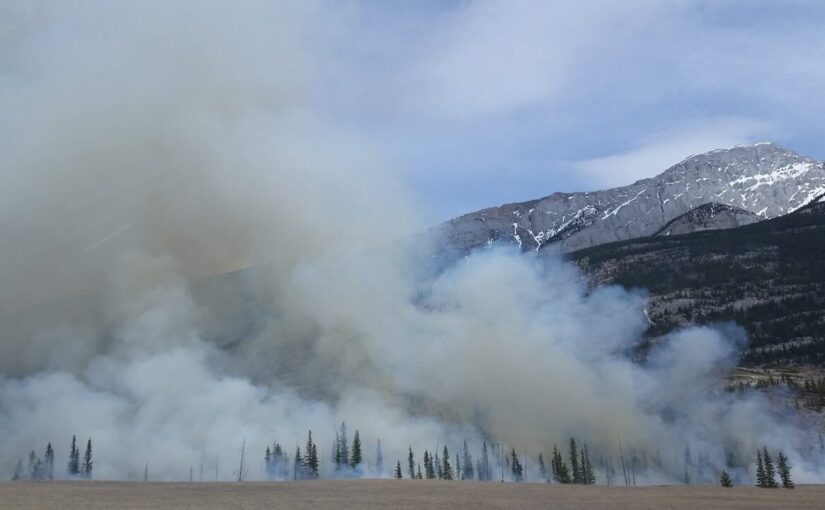Gale Rigobert shares with us her thoughts on policy and emergency responses in the ninth blog in this series based on the IGDC/YESI Webinar event ‘Emergencies, wellbeing and social justice in the Anthropocene.’
Gale Rigobert specialises in International Relations and political leadership and representation. Gale joined us in this webinar to discuss her thoughts and experiences on policy and emergency responses.
The Anthropocene
Something very dramatic is happening with our planet. The scientific evidence is compelling (see recent IPCC reports Cited 12/07/22), even against the backdrop of the most vociferous claims to the contrary from climate change sceptics. Wherever you reside, whatever continent; regardless of race, size of population or landmass – there are enough adverse weather systems, bush fires, droughts, floods, diminishing species, disappearing glaciers to suggest that something very dramatic IS happening with our planet, to our planet, on our planet! Climate change is REAL!
This is not to suggest that there is a homogeneity of thought on what constitutes climate change per se, or that there is consensus on the root causes, or that any of the many proposed measures for mitigation or adaptation translate to a universal cure.
What constitutes an emergency?
I wish to proffer that an emergency is an event or set of events that cause significant disruption to everyday life; have significant national if not global economic or trade implications; affect a sizeable part/parts of the population; can interfere with the somatic existence of citizens; cause damage to the physical environment and infrastructure; and is life threatening (to living species, humans included). In many respects an emergency occurs when one or more of these hold true. Moreover, the intersectionality of additional variables such as race, economic class, gender, nationality and religion play a particularly significant role in determining whether an event or series of events constitute an emergency.
This has significant bearing on the framing of the response, governance and concomitant policy interventions and actions (or inaction).
Much of our understanding of an “emergency” undoubtedly is also determined by the media and in today’s context, social media, in particular. Therein lies an inherent fallacy, that an issue, event or series of events can be dubbed an “emergency” depending on the amount of media coverage, and the sensationalism that rises therefrom. So, believe it or not, reliable communications networks or infrastructure, also lend themselves as telling determinants.
Challenges
To complicate things further; how do we deal with cross-cutting issues that are not necessarily part and parcel of the main event that triggered the “emergency”?
Perhaps among the main challenges in deconstructing what constitutes an emergency and the framing of responses, are the lingering strictures and vestiges of colonialism. How often have we heard reports on events, dubbed emergencies, and reference is made to “former colony of…”? This is not simply recalling a historical fact, but is laced with expectations of where the response should come from and subliminally hints at who should carry the burden of relief efforts.
While we struggle not to become consumed with the binaries and dualisms that artificially demarcate us and them; black or white; Western/Northern or Southern; developed countries or emerging societies; male or female; rich or poor, there is absolutely no denying that these are the very same dichotomies that have significant bearing on emergencies and the response thereto!
Therefore, if we are to correct the inequity inherent in our response framework, we must first address these structural artificial and farcical dichotomies. It is against that backdrop, that we need to advocate for a decolonization of emergency response frameworks! Herein lies a real opportunity.
Another very troublesome issue is the dilemma that confronts many victims of emergencies brought on by climatic events. For example, small islands states in particular, often caught in a quagmire of rebuilding and reconstruction, endeavouring to recover from some kind of adverse weather event and no sooner have they recovered from one, then they are struck by another. If we were to strip bare the epistemological trappings of emergencies as couched within an Eurocentric frame, that some SIDS may be perceived as trapped in a constant state of emergency. Similarly, one has only to observe what is happening in certain hotspots in Africa, in the Middle East, in Europe, yes in Europe … and one will appreciate how different crises or emergencies may appear if they were to be viewed through non-eurocentric or non-ethnocentric lenses.
Can emergencies ever be free of the shackles of the eurocentrism and ethnocentrism? Is there another frame of reference other than the capitalistic, liberal frame that shapes the political economy of emergency response?
Any attempt at redefining the response framework must first acknowledge these cross-cutting issues and the intersectionality of the variables. Reimagining emergency response frameworks, therefore, requires first a decolonization of emergency response frameworks. This has implications for managing expectations, ascribing and assuming responsibility and the quality and efficacy of prescriptive policies/interventions and of course financing.
Opportunities
There is an old Chinese adage, that there is opportunity in crisis. The opportunity afforded to us, at this juncture, is to reimagine and reframe response frameworks, that do not bear any semblance of colonialism.
I wish to contend that the political economy of emergency response itself is born out of the colonial framework, and to divorce these two epistemologically wedged phenomena, requires a thought revolution in the context of emergency framing for governance, policy and action.
Are stakeholders willing to come together to erase the ethnocentrism and eurocentrism that have underpinned our response psyche, that has led us to normalise;
- What qualifies as an emergency;
- Who the victims are;
- Who should respond;
- What quantum of resources to be injected;
- Who should benefit; and
- Who should lead the response efforts.
Social Justice: Challenge or Opportunity
For me, every effort must be made to narrow access gaps, wealth gaps, economic gaps, technology gaps and the like. Can we reasonably expect that through our advocacy, to ask of stakeholders and global citizens not to become so desensitized that they have become numb to global emergencies and the havoc and trauma wrought on millions in various parts of the world.
We must challenge ourselves to ensure that in the language of the SDGS … no one is left behind. We cannot absolve ourselves of agency. Can we, while acknowledging that notions of social justice may not be universal, challenge ourselves to reverse some of the trends that threaten the very fundamentals of equity and equality? We may not know what the barometer is in its entirety, but we should have some general understanding and collective appreciation for the direction we as global citizens ought to be moving in.
Policy making is not neutral!
Policy making is not neutral. It cannot be, because it happens within the very space characterised by all the issues I have highlighted – it is prescribed by the political economy of emergency response; colonialism, eurocentrism, ethnocentrism, and all the other intersecting and indivisible issues.
No wonder, the policy imperatives of today are simultaneously desperately urgent and woefully inadequate. Why? The world is facing increasing numbers of emergencies of all kinds – such as health, food, economic, energy, climate, ecological and political.
Policies are a reflection of the very environment that gives rise to them. Can we purposefully, strategically and meaningfully infuse notions of social justice into policy making, albeit in the context of emergency framing and response? Is there an organic symbiotic relationship between that endeavour, and a presumed automatic dividend that ultimately contributes to the realisation of the Sustainable Development Goals?
Conclusion
Urgent and concrete actions are what the world needs now. However for this to be achieved we must revisit, reframe and reimagine what we mean by emergency. Can we envisage a renewed perception? Can we stem the desensitization and emergency fatigue that have resulted a dwindling of resources and reversal of the very sentiments that spurred regionalism and multilateralism in the first instance? Hence the rise of populism and the return to the “go it alone” approach.
We have come this far together. In good times and in bad, rain or shine – the global citizenry is desperate for a rebalancing of the system so that we see fewer “emergencies”; that countries become more resilient and that notions of social justice and sustainability will become common staple in the art of policy making and not some far fetched esoteric ambition.
Check out the full version of Gale’s talk:
About the author

Dr. Gale T C Rigobert is an Advisory Board Member, International Relations Expert , Author, Lecturer, Former Government Minister, TV Host, as well as currently a visiting fellow to IGDC.
As a Climate Change Champion, she is an intrinsically motivated, highly driven, energetic, passionate and innovative thinker who has combined over twelve years of experience in academia specializing in International Relations and ten years in political leadership and representation, to bring to fruition tangible solutions to complex socio-economic challenges.

